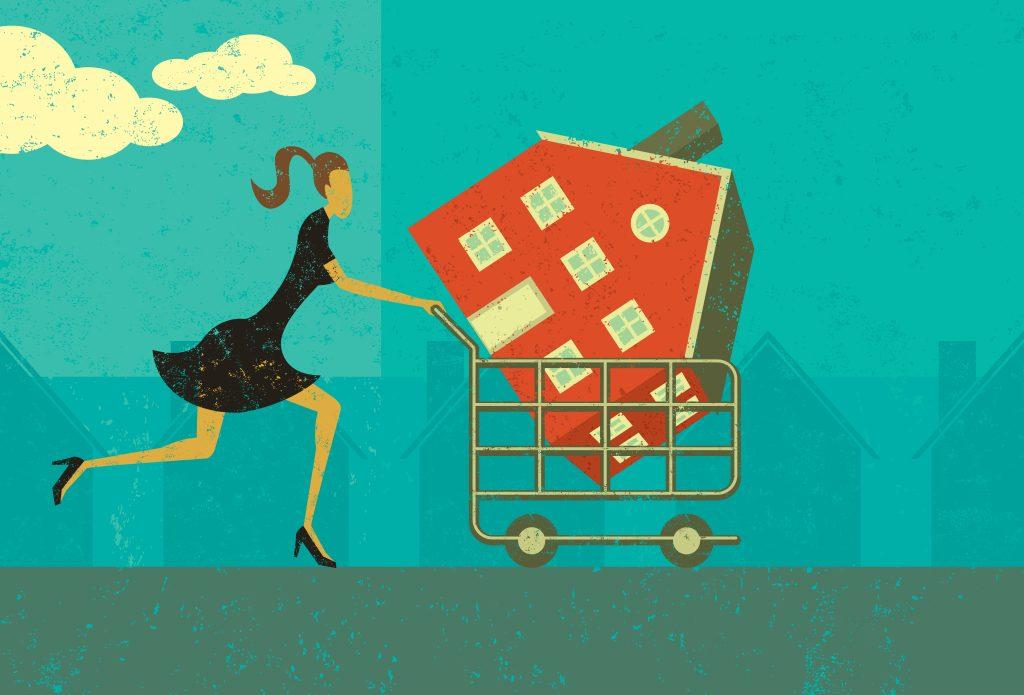However, by doing your homework first and getting a good grasp of where to start. The process does not have to be as daunting as you first thought.
5 Tips to Help You Get Started
1. Start Saving Early
If you’re still in the very early stages of exploring your options, be sure to continue making saving for a down payment a priority. Many conventional loans require a 20% down payment. However, there are other programs out there that will accept a smaller down payment. Putting down less than 20% may mean higher costs and private mortgage insurance though, so be sure to research all lending options.
2. Know Your Credit Score
Before getting serious about purchasing your first home, be sure you check your credit score. Your score will be a key factor in determining whether you’re approved or not. Your score also determines your interest rate. A typical mortgage lasts for 30 years, so you’ll want to get the best rate that you can. If you’re not happy with your current score, consider working on bringing that up before starting the home buying process.
3. Figure out What You can Afford
You are the only one who will truly know whether or not you can afford a mortgage payment, and the extra costs of homeownership. Sit down and look through your budget. Factor in the estimated cost of a mortgage, home insurance, property taxes, utilities, etc. and see if you can comfortably manage. The last thing you want is to be in your new home, but stressed over your too tight financial situation.
Extra tip: Although you may be pre-approved for a certain amount from a lender, you don’t necessarily need to spend that much. Keep in mind what your monthly payment will be and what you’re comfortable paying. You may find that a lower monthly payment would best fit your budget and may want to look for a home in that price range instead. Anticipate that your monthly spending may increase with a growing family or other life events? Make sure you leave enough cushion in your budget to account for these.
4. Don’t Forget about Closing Costs
Many new home buyers are so focused on the cost of a down payment, that it’s easy to overlook the closing costs. These costs can be substantial and are estimated to be about 2 – 5% of your loan amount. If you’re purchasing a home for $200,000, your closing costs could be anywhere from $4,000 – $10,000. Certain expenses included in those totals are things you can price compare for, such as homeowner’s insurance, home inspections and title searches. In some transactions, you can also try asking the seller to pay for a portion of the closing costs.
5. Get Pre-Approved Before You Search
A pre-approval letter is the sign of a serious home buyer. When putting in an offer, this letter can often put you ahead of another buyer without one. You’ll need to meet with a lender in order to obtain a pre-approval letter, at which time they’ll look at your finances and put in writing how much they would be willing to lend you and what terms they would lend at. Be sure to have at least 2 years of tax returns handy, along with proof of income and account statements. Since they’d be lending a large amount of money, they really delve into your finances.
These are just a few of the tips to help you out as you start your home-buying journey. For more assistance, feel free to give us a call and make an appointment with a loan officer to discuss your options. You can also visit our website and check out the different options available to you, including Vacant Land Loans, Construction Loans, and First Mortgages. Be sure to look into all of your options to find what program works best for your finances before you start looking at homes or lots. Happy house hunting!
Source: https://www.nerdwallet.com/article/tips-for-first-time-home-buyers

